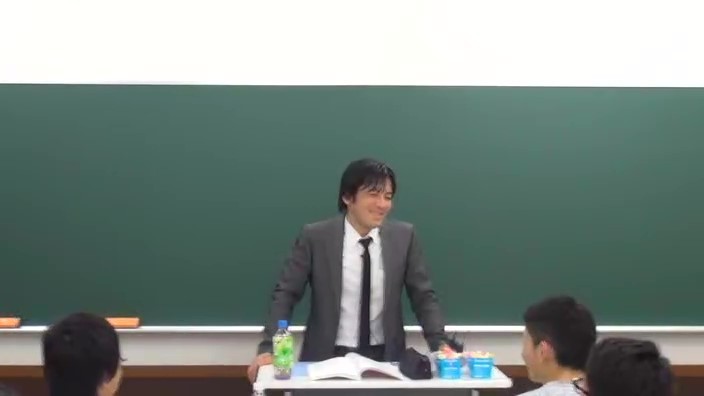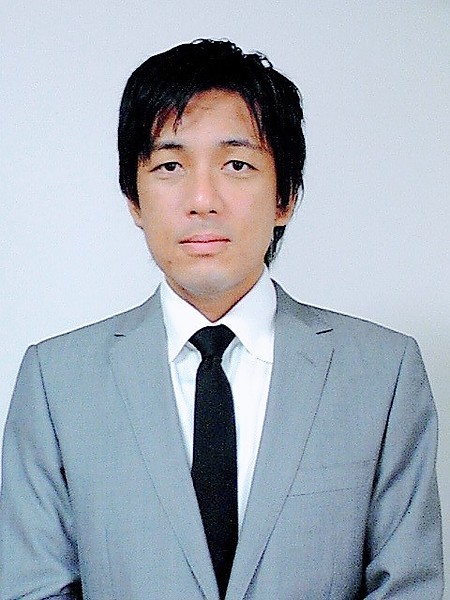京大英作文で考える【 和文英訳の本質 】
アウトプット英文法
このシリーズでは選択肢を排した問題を用います。
負荷を高めてライティング・スピーキングに繋げる
意図です。
また、問題文に対して複数の言い換えを確認する
ことで、柔軟な思考と英語的発想が鍛えられます。
文法知識に不安がある人は、
記事の最後にまとめた【インプット英文法】
を先に確認してからアウトプットの問題を
やってください。
001.
その少年は父親にその大会には出場しないように言われたのだが参加した。
The boy took part in the contest even though his father had told him ( ) ( ).
The boy took part in the contest even though his father had told him not to.
The boy’s father warned the boy that he should not have participated in the contest but he did.
The boy took part in the contest despite his father's warning not to.
The boy participated in the competition even though his father advised against it.
*not to は〈代不定詞〉で not to take part in the contest の意
*take part in A:A に参加する=join A
002.
社⻑はできるだけ速くその書類をタイプするように命じた。
The president ordered the papers ( ) ( ) ( ) as quickly as possible.
The president ordered the papers to be typed as quickly as possible.
The president ordered that the papers be typed as quickly as possible.
The president instructed that the documents should be typed with utmost speed.
*受動形不定詞〈to be done〉
*as … as possible:できるだけ 〜
*order ⼈ to do:⼈に〜するように命じる
003.
事実はあなたが思っているものとは違います。
The truth is not what you believe it ( ) ( ) .
The truth is not what you believe it to be.
The reality isn't as you perceive it.
The reality differs from what you think it is.
What you consider the truth is not accurate.
*what (you belive) it to be は〈連鎖関係詞節〉で補語
*believe O to do:O を〜であると信じる
004.
この種の劇場では喫煙はさしひかえることになっています。
You are ( ) ( ) refrain from smoking in this sort of theater.
You are supposed to refrain from smoking in this sort of theater.
You are supposed to refrain from smoking in this type of theater.
It is expected that you should avoid smoking in this kind of theater.
You must stop smoking in this kind of theater.
*refrain from doing:〜を差し控える
*be supposed to do:〜することになっている
005.
先生のもつ知識を受身の姿勢で受け入れることが原因となって⼈々は指導者を求めるようになる。
Passive acceptance of the teacher’s wisdom ( ) men ( ) seek a leader.
Passive acceptance of the teacher’s wisdom causes men to seek a leader.
Passive acceptance of the teacher's wisdom encourages people to seek a leader.
Accepting the teacher's knowledge passively prompts individuals to look for a leader.
*cause ⼈ to do:⼈に 〜 させる原因となる
006.
電気を用いることで,彼らは様々なことをすることができた。
The use of electricity (e ) them ( ) do a variety of things.
The use of electricity enabled them to do a variety of things.
The use of electricity allows them to perform various tasks.
By utilizing electricity, they are capable of accomplishing a wide range of activities.
Using electricity allow them to do a variety of things.
By using electricity, they could do a variety of things.
*a variety of A:様々なA
*enable ⼈ to do:⼈が〜することを可能にする =allow ⼈ to do
007.
私は彼女に,私がいない間に何があったかを話させようとした。
I ( ) her ( ) tell me what had happened in my absence.
I encouraged her to tell me what had happened in my absence.
I encouraged her to tell me what had occurred in my absence.
I urged her to inform me about events that transpired while I was away.
I talked into telling me what had happened while I was out.
*encourage ⼈ to do:⼈に 〜 するように促す
008.
将来,もう二度と戦争など起こってもらいたくない。
We don’t want ( ) ( ) be any more wars in the future.
We don’t want there to be any more wars in the future.
We don't want there to be any more wars in the future.
We desire to prevent any future conflicts.
*want+<O+to do> (=全体で目的語)
*there is 構文のthere は準動詞の意味上のS になることがある
009.
教育が目指している事の一つは,⼈々に潜在的な能力を引き出させることである。
One of the aims of education is ( ) ( ) people realize their latent power.
One of the aims of education is to have people realize their latent power.
One of the goals of education is to make individuals realize their untapped potential.
Education aims to help people discover their latent abilities.
*have ⼈ do:⼈に 〜 させる
010.
私が助けに行くまでロープを手離すな。
Don’t let go (of) the rope before I ( ) ( ) help you.
Don’t let go (of) the rope before I come to help you.
Don't let go of the rope until I come to help you.
Hold on to the rope until I arrive to assist you.
Hold on to the rope till I come to help you soon.
*come to do:〜しに行く
011.
彼はひとことも聞きもらすまいと注意深く耳を懐けた。
He listened attentively ( )( ) miss even one word.
He listened attentively not to miss even one word.
He listened attentively so as not to miss a single word.
He paid close attention to ensure he didn't miss a word.
*準動詞の否定語 (not, never) の位置はその直前
*miss a word:言葉を聞き漏らす
012.
私はポケットをさぐってみたが,小物入れがなくなっていた。
I felt in my pocket only ( ) ( ) my purse gone.
I felt in my pocket only to find my purse gone.
I felt in my pocket and realized my wallet was missing.
I reached into my pocket and discovered that my purse was gone.
*find O gone:O がなくなっているのに気付く
*only to do:〈結果〉
013.
なくしたものとあきらめていた本が見つかってとても嬉しかった。
I was very glad ( ) find the book that I had given up for lost.
I was very glad to find the book that I had given up for lost.
I was overjoyed to find the book that I had given up as lost.
I was delighted to recover the book I had thought was lost.
*be glad/pleased/happy to do:〜して嬉しい
*to 不定詞は〈感情の原因〉
*glad:感情 → to find … :その原因
*give up N for lost:N を無いものとして諦める
014.
列車でいねむりをしている間にすりにあうなんて君はなんと不注意なんだ。
How careless you are ( ) ( )had your pocket picked while you were asleep in the train !
How careless you are to have had your pocket picked while you were asleep in the train !
How careless of you to have someone pick your pocket while sleeping in the train.
How careless of you to have your pocket picked while sleeping on the train!
It's quite careless to have someone steal from your pocket while sleeping on the train.
*have one’s pocket picked:スリに会う
*careless:〈判断〉→ to have …:その理由〈判断の根拠〉
015.
彼は給料が少なくてぜいたくな生活などできなかった。
His salary was ( ) ( ) ( ) live in luxury.
His salary was too small to live in luxury.
His salary was so small that he could not live in luxury.
His salary was insufficient to live luxuriously.
His salary was too small to afford a lavish lifestyle.
*large/small → population/ number /income/ family/ salary/ audience
*in luxury:贅沢に
016.
彼はただただ私との結婚を望んでいる。
He is only too ( ) ( ) marry me.
He is only too anxious to marry me.
He is extremely eager to marry me.
He is very enthusiastic about marrying me.
*only too = very *be anxious to do:〜することを望む
≒be eager for A; long for A
017.
仕事に行く途中で,私にかわってこの手紙を投かんしていただけませんか。
Would you be ( ) ( ) ( ) mail this letter for me on the way to work ?
Would you be kind enough to mail this letter for me on the way to work ?
Would you be so kind as to mail this letter for me on your way to work?
Would you mind sending this letter for me while you're on your way to work?
Would you mind mailing this letter for me on the way to work ?
*on the way to A:A の途中で
018.
日本の大学は,入るのは難しいが出るのは易しいと言われている。
It is said that Japanese universities are ( ) ( ) ( ) but easy to graduate from.
It is said that Japanese universities are difficult to enter but easy to graduate from.
It is said that Japanese universities are tough to get into but easy to graduate from.
Japanese universities are reputed to be hard to enter but lenient when it comes to graduation.
*to 不定詞は形容詞 (difficult) の意味を限定する用法
*enter〈他〉〜に入る
*graduate from A:A から卒業する
020.
私達は,自分達だけの視点から世の中を眺めがちだ。
We are apt ( ) ( ) the world from our particular point of view.
We are apt to see the world from our particular point of view.
We tend to see the world from our particular point of view.
*point of view:視点
*be apt to do:〜 する傾向にある
=be tend to do ≒be likely to do〈好ましくない事〉
021.
公平な評価をすれば,彼女は良妻賢⺟である。
( ) ( ) ( ) justice, she is a good wife and (a) wise mother.
To do her justice, she is a good wife and (a) wise mother.
We tend to see the world from our own perspective.
We often view the world from our own point of view.
*do one justice:公平な評価を与える
- do A good「Aに利益を与える」
- do A harm「Aに害を与える」
- do more harm than good「有害無益である」
- do A justice「Aを公平に扱う」
- do A a favor「Aに親切な行為をする」
- do A damage「Aに害を与える」
インプット英文法【不定詞】
(to do …) = (名詞句) or (形容詞句) or (副詞句)
✰ 名詞用法 ➪ S/O/C として機能する
✰ 形容詞用法 ➪ 前の名詞を修飾
✰ 副詞用法 ➪ 上記以外の全て
<用語の整理>
be to 不定詞 〈be to do〉①予定 ②義務 ③可能 ④運命 ⑤意図 ⑥目的
完了不定詞〈to have done〉 文の動詞より前の時制を表す
原形不定詞 〈do〉 知覚動詞・使役動詞の目的格補語
代不定詞〈to do〉 前述動詞表現の反復回避でto のみで表す
1 . 名詞用法
S/O/C になる (前置詞の目的語は不可)
(1) To know oneself is difficult.
自分自身を知ることは難しい。
(2) It is necessary to have a good sleep.
十分に睡眠をとることが必要です。
(3) All I can do is to sing for you.
私にできることは,あなたのために歌うことだけです。
(4) I decided to go on to college.
私は大学に進学することにした。
疑問詞+to do・whether+to do
(1) What to do is an important question.
何をすべきかが重要な問題だ。
(2) How to begin is more difficult than where to stop.
どう始めるかということはどこでやめるかということより難しい。
(3) Please tell me which bus to take.
どちらのバスに乗るべきか私に教えてください。
(4) I don't know whether to trust him or not.
彼を信用すべきかどうか,私にはわからない。
2 .形容詞用法
名 ← to do
(1) I have no friends to help me.
私には助けてくれる友達がいない。
(2) He lent me a book to read.
彼は私に読む本を貸してくれた。
(3) We need a house to live in.
私たちには住む家が必要だ。
3 .副詞用法
❶ 目的
(1) We eat to live, not live to eat.
私たちは生きるために食べるのであり,食べるために生きるのではない。
(2) He studied hard in order to pass the examination.
彼は試験に合格するように一生懸命に勉強した。
(3) He hurried to the station so as to catch the last train.
彼は最終列車に間に合うように駅へと急いだ。
*〔目的〕の意を明示する時には in order to, so as to を使う
❷ (感情の)原因・理由 ★直前に < 感情 > を示す語が出現
(1) I am sorry to hear that you were hurt in the accident.
その事故でけがをされたそうでお気の毒に思っています。
(2) I am very glad to see you.
お目にかかれてとても嬉しいです。
❸ 判断の根拠 ★直前に < 判断 > を表す表現が出現
(1) You must be crazy to go out in this stormy weather.
こんな悪天候に出て行くなんて,君は頭がおかしいに違いない。
(2) What a fool I am to have missed the chance !
そのチャンスを逃したなんて,私はなんて馬鹿なんだろう。
★判断を表す語には助動詞のmust, cannot がある
また感嘆文が使われることも多い
❹ 限定・程度
(1) This book is difficult to read.
この本は読むには難しい。
(2) This book is too difficult to read.
この本は読むにはあまりにも難しすぎる。
→この本は難しすぎて読めない
= It is difficult to read this book.
(3) You are old enough to see its meaning.
君はその意味がわかるのにじゅうぶん年をとっている。
→わかってもいい年頃だ。
=You are so old as to see its meaning
(4) She was so kind as to help me.
彼女は私を助けてくれるほど十分親切だ。
→親切にも私を助けてくれた。
=She was kind enough to help me.
❺ 結果
(1) He awoke to find the house on fire.
彼は目を覚ますと,家が火事になっていることに気づいた。
(2) The boy grew up to be a fine gentleman.
その少年は大きくなって立派な紳士になった。
(3) My grandmother lived to be ninety years old.
私の祖⺟は90 歳まで生きました。
(4) He tried only to fail.
彼は挑戦したが,失敗した。
(5) He went over to India, never to return.
彼はインドに渡って,二度と戻って来なかった。
☆ awake to ~・wake up to ~ 目を覚ますと〜
☆ grow up to ~ 成⻑して〜
☆ live to be ~ 〜になるまで生きる
☆ … only to ~ …したが結局…
☆ … never to ~ …して二度と〜
❻ 条件〔仮定法〕
(1) To hear him speak English, you would take him for an American.
彼が英語を話すのを聞けば,彼をアメリカ人だと思うだろう。
(2) It would be wiser to leave it unsaid.
それは言わないでおいたほうが賢明だろう。
❼ 独立不定詞
(1) To tell the truth, she died three days ago.
実を言うと,彼女は3 年前に死んだのですよ
(2) To make matters worse, her child became sick.
さらに悪いことには,彼女の子供が病気になった
(3) You are, so to speak, a fish out of water.
君はいわば陸に上がった魚のようなものだ
(4) To begin with, beat two eggs in a bowl.
まず始めに,卵を2 つボールの中でかき混ぜます
◆ その他の独立不定詞
☆ to say nothing of 〜 〜は言うまでもなく
☆ not to mention 〜 〜は言うまでもなく
☆ not to speak of 〜 〜は言うまでもなく
☆ strange to say 奇妙なことに
☆ to be sure 確かに
☆ to make a long story short かいつまんで言うと
☆ to be brief 手短かに言えば
◆ be to 構文
(1)〔予定〕 「〜することになっている」 *時間・場所の表現が出現
(2)〔意図〕 「〜するつもりだ・〜したい」 * if 節中が多い
(3)〔必要・義務〕 「〜しなければならない」
(4)〔可能〕 「〜できる」 *受動態が多い
(5)〔運命〕 「〜する運命だ」 *過去形が多い
(1) John and I are to meet at the station at six.
➪ John and I are going to meet at the station at six.
ジョンと私は6 時に駅で会うことになっている。
(2) If you are to succeed, you must work harder.
➪ If you want to succeed, you must work harder.
成功したいなら,君はもっと勉強しなければならない。
(3) You are not to smoke in this room.
➪ You must not smoke in this room.
➪ You should not smoke in this room.
この部屋ではタバコを吸ってはいけない
(4) He was never to see his mother again.
➪ He was destined never to see his mother again.
彼は再び⺟親に会うことのない運命にあった。
(5) The camera was not to be found.
➪ The camera couldn't be found.
そのカメラは見つからなかった
4 . 完了不定詞〈to have done〉
❑ 単純不定詞 <to do> ➪ 文の述語動詞と同じ時制を表す
❑ 完了不定詞 <to have done> ➪ 文の述語動詞よりも1 つ前の時制表す
(1) He seems to be ill.
= It seems that he is ill.
彼は病気らしい。
(2) He seems to have been ill.
= It seems that he was [has been] ill.
彼は病気だったらしい。
(3) He seemed to be ill.
= It seemed that he was ill.
彼は病気であるように思われた。
(4) He seemed to have been ill.
= It seemed that he had been ill.
彼は病気をしていたように思われた。
= He is said to have been rich when he was young.
= It is said that he was rich when he was young.
彼は若いころ金持ちだったそうだ。
She was said to have been the most beautiful lady in the town.
= They said that she had been the most beautiful lady in the town.
彼女は町で一番の美人だったそうだ
◆ 意味上の主語
⑴ 意味上の主語が一般の人 ➪ 表さない
⑵ It is 形 for A to do ➪ A
⑶ It is 形 of〈人〉to do ➪ 〈人〉
⑷ S V O to do ➪ O
⑸ S V to do ➪ 文のS
⑹ S V O 形容詞用法のto do ➪ 直前の名詞(O)
⑴ It is important to learn English.
英語を勉強することは重要だ。
⑵ It is important for Taro to learn English.
太郎が英語を勉強することは重要だ。
⑶ It is kind of you to show me around the town.
町をあちこち案内してもらってありがとうございます。
⑷ My mother told me to eat more vegetables.
=My mother told me that I should eat more vegetables.
母は私にもっと野菜を食べるようにと言った。
⑸ I have decided to major on economics in college.
私は大学で経済学を専攻することに決心した。
⑹ She is not a person to deceive to others.
彼女は他人を騙すような人ではない。
◆ 不定詞のみを目的語にとる動詞
wish(〜したいと思う)
hope(〜したいと思う)
desire(〜したいと思う)
plan(〜するつもりである),
seek(〜しようとする)
attempt(〜しようとする)
manage(何とか〜する)
pretend(〜するふりをする)
afford(〜する余裕がある)
fail(〜しない)
mean(〜するつもりである)
expect(〜するつもりである)
decide(〜することに決める)
determine(〜することに決める)
promise(〜すると約束する)
refuse(〜することを拒む)
learn(〜できるようになる)
今後も英語に関する情報を発信していきます。










